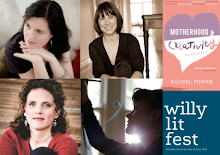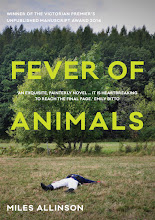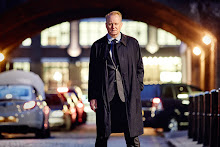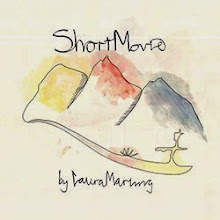
In the talk I did at my local writers’ festival recently, I said something like: “I feel like it’s a sad and somewhat controversial thing to admit that I feel it would be a lot easier for me, as a mother, to have no ambitions.” One of my fellow speakers, artist Sarah Tomasetti, later admitted that she was expecting me to say what would have been much more controversial statement: that my life would be easier if I hadn’t had children.
Well, I think it goes without saying that a life without children would be an easier one. Except that, as someone who always wanted kids, I would have become obsessed with wanting them and had to go through a long process of coming to terms with my childlessness. That said, I have more sympathy now with those who choose not to have children than I ever did before I had my own—not because I have regrets, but because now I actually understand the sacrifices that are made.
The desire to have children is a peculiar force—a biological trick or animal urge perhaps, if you want to see it that way, but therein lies its legitimate power. Considering that getting pregnant is for most Western women a choice nowadays, if that biological compulsion was not there, I cannot imagine what other arguments you might pose to yourself in making the case for becoming a parent. It is not one that can be made on any logical grounds, on the basis of some cost-benefit analysis. Like art, the urge to create children is mysterious and unbidden, and the rewards unmeasurable.
Particularly among the artistic community, there are still many for whom their work takes the place of children, or at least who feel kids would be too great a spanner in the artistic works. (The whole time I have been writing this, with my computer on my lap, I have also been playing shops with my three-year-old daughter, ‘scanning’ items with the phone and taking her ‘money’, with her occasionally grabbing my face between her hands and saying: “You’re not looking at me!” The only alternative is letting her cut up my partner’s music magazines, which wouldn't be worth my life.)
Of course children are, among other things, a constraining force in an artist’s, or in anyone’s, life. There are those who would say this is just the reality, and there are those who would say this is a limited way of seeing things—a great failure of imagination—and, in a sense, both are true. Or the truth lies somewhere in between. And doesn’t this just some up the maternal experience? For many, if not most of us, to be a mother is to be mired in a state of contradiction.
Which gets to the theme of this post: maternal ambivalence. The other day I was thinking what a marvel is that such a word exists in the English language that so perfectly sums up the experience of mothering—and one I still associate with poet Adrienne Rich’s description of mothering as the the "murderous alternation between bitter resentment and raw-edged nerves, and blissful gratification and tenderness". I was pondering this while listening to a BBC Women’s Hour program about Doris Lessing’s The Golden Notebook (which I haven’t yet read), groundbreaking for many reasons, but partly because of its honest depiction of mothering. One of the commentators on the show was Lionel Shriver, whose book We Need to Talk About Kevin (another on my stupidly long list of ‘must-reads’) made her the unintended spokeswoman for maternal ambivalence.
I wrote quite a long section in The Divided Heart about whether an artist’s imaginative powers might be one of the very things that stops them from having children—it later got cut. But Shriver was one of my main case-in-points. “What has continued to frighten me off children for all these years?” she has asked, rhetorically. Among other things: “The relegation of one’s own ambitions so far to the backburner that they fall off the stove. A precipitous social demotion that I inferred from the chuckle of those smarmy adults who discounted my renunciations at eight: You say you want to be a writer but you’re a girl, and all you really want to be is a mommy.”
She had long ago decided that her mother got the raw deal in her family, and went on to readily embrace her hostility (her word) toward motherhood. “…when a reporter from Birmingham asked tentatively in a phone interview, ‘Wasn’t refusing parenthood a little ... selfish?’ I bellowed into the receiver, ‘Absolutely!’” As she admits elsewhere: “They [kids] would have siphoned too much time away from the writing of my precious books.”
In an attempt to resolve her repulsion for motherhood (her word again), she wrote her bestselling Kevin, which describes an antagonistic relationship between a mother and son, who at fifteen goes on a horrific killing spree at his school. “The massacre is and isn’t the mother’s fault,” she says, i.e. that's up to the reader to decide.
You can check out two of her articles for The Guardian here and here.
In part, her lack of maternal desire was a reaction against the “unwritten gag rule” that expected her mother to bury her real feelings and instead present a rosy picture. A remarkable number of readers, Shriver says, expressed their gratitude that “someone in modern literature has put motherhood’s hitherto off-limits emotions into print”. As she puts it, she wanted to get away from novels’ routine portrayal of children as adorable moppets who come out with nuggets of wisdom at the dinner table. Also, she rails against the idea of childhood innocence; the belief that kids’ behaviour is out of their control and purely influenced by environmental factors.
“While we may have taken the lid off sex, it is still out of bounds to say that you do not like your own kids, that the sacrifices they have demanded are unbearable, or that, perish the thought, you wish you had never had them.”
Shriver is a powerful and talented writer, and I do not have a moral objection to her views per se. But it does seem to me that they only paint half the picture—something that makes sense, I suppose, Shriver having chosen to remain child-free and basing much of her beliefs on her mother’s experience (which wasn’t a good one) and her memories of herself as a child.
Without wanting to take away from the validity of what Shriver does have to say—she is a writer of great imaginative powers and her words clearly speak to people—can you actually be the voice of maternal ambivalence when you haven’t experienced maternity?
To me, ambivalence implies not only that adverse reaction but, in motherhood’s case, the wild swing between—or even simultaneous sense of—overwhelming frustration and surging joy and adoration. I don’t doubt that there are those out there who genuinely regret having children—and for those whose children go on to commit terrible crimes, this must be a particularly fraught and painful question. But to suggest that some children are just born bad, and that some mothers indeed dislike their own offspring, while perhaps occasionally true, overall seems a little simplistic.
Shriver bases this notion partly on her recollection of intentionally giving her mother a hard time. I’m no expert on childhood, and as a parent I am painfully aware of my deficiencies—just as I am aware that children are not always innocent. Kids can behave badly, it’s true (as can adults), and they are often wilful. The fact that discipline may often be an appropriate response, doesn’t automatically make the child’s actions merely "bad". In developing an identity separate to their parents, a child will test boundaries and limits. That’s the nature of growth.
For those who do not have regular contact with them, kids can be a bit intimidating. But to say that you don’t like kids seems to me a denial of life. You may as well be saying that you don’t like people; that you don’t like yourself.
Shriver looked at the question of maternal ambivalence through a fictional account of a worst case scenario. The Divided Heart was also an attempt at getting to the ‘truth’ (if there can be such a thing) of the maternal experience—its pitfalls and its pleasures—and I hope provided similar solace for readers. (And in saying that I do not mean to be putting me or my book in Lionel Shriver’s league, or to suggest they are directly comparable in intention.)
In presenting a frank account of motherhood, in all its complexity of conflicting emotions, women will always attract criticism and contempt. (I have copped my fair share of this, and have had to remind myself of British author Rachel Cusk’s assertion that she didn’t write her troubled and exhilaratingly candid memoir, A Life's Work: On Becoming a Mother, for “all those Alice-band-wearing mumsies out there”.) In general, an environment now exists where mothers have greater permission than ever to express their feelings of despair as well as gratification.
Occasionally someone at my partner’s work will ask him whether or not it’s worth it: having children. He tells them: “It’s bloody hard work but you’ll laugh more than you’ve ever laughed in your life.” And that much is true.





















